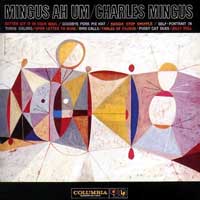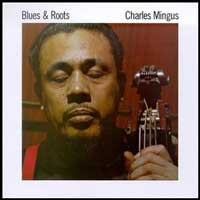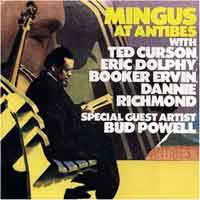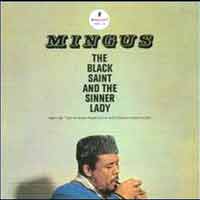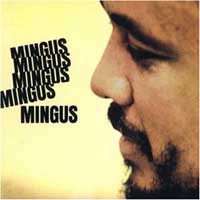| Pithecanthropus Erectus was Charles Mingus' breakthrough
as a leader, the album where he established himself as a composer of boundless
imagination and a fresh new voice that, despite his ambitiously modern concepts,
was firmly grounded in jazz tradition. Mingus truly discovered himself after
mastering the vocabularies of bop and swing, and with Pithecanthropus Erectus
he began seeking new ways to increase the evocative power of the art form
and challenge his musicians (who here include altoist Jackie McLean and
pianist Mal Waldron) to work outside of convention. The title cut is one
of his greatest masterpieces: a four-movement tone poem depicting man's
evolution from pride and accomplishment to hubris and slavery and finally
to ultimate destruction. The piece is held together by a haunting, repeated
theme and broken up by frenetic, sound-effect-filled interludes that grow
darker as man's spirit sinks lower. It can be a little hard to follow the
story line, but the whole thing seethes with a brooding intensity that comes
from the soloist's extraordinary focus on the mood, rather than simply flashing
their chops. Mingus' playful side surfaces on "A Foggy Day (In San
Francisco)," which crams numerous sound effects (all from actual instruments)
into a highly visual portrait, complete with honking cars, ringing trolleys,
sirens, police whistles, change clinking on the sidewalk, and more. This
was the first album where Mingus tailored his arrangements to the personalities
of his musicians, teaching the pieces by ear instead of writing everything
out. Perhaps that's why Pithecanthropus Erectus resembles paintings in sound
-- full of sumptuous tone colors learned through Duke Ellington, but also
rich in sonic details that only could have come from an adventurous modernist.
And Mingus plays with the sort of raw passion that comes with the first
flush of mastery. Still one of his greatest. -- Steve Huey (AMG) |
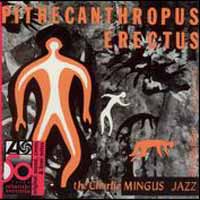
 Plattentipp
Plattentipp 

